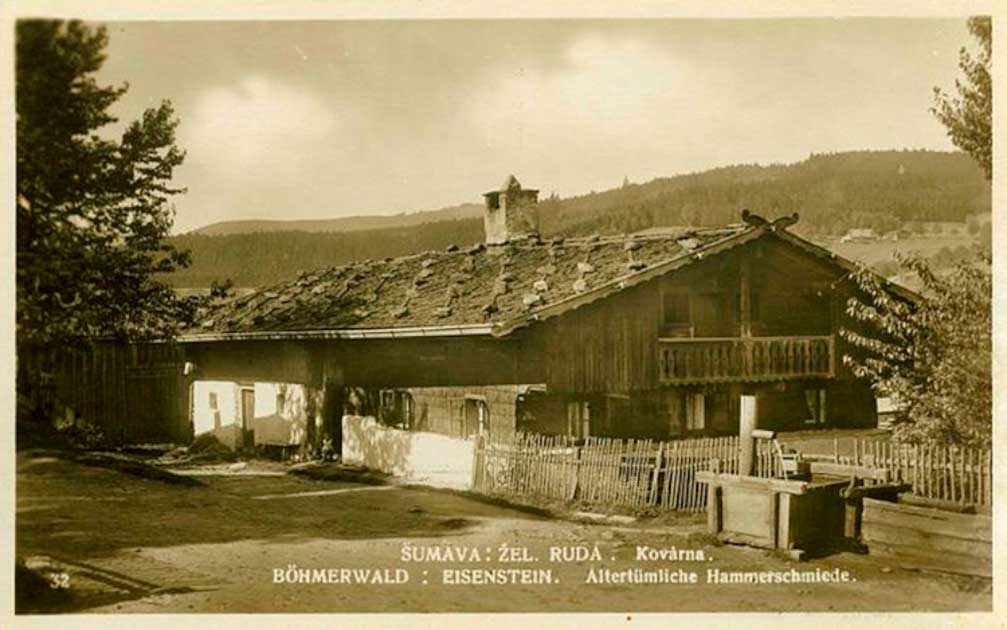In the great wars of the 20th century, the aggressor powers have often been reduced to a stalemate not just by enemy combatants, but by the occupied populace fighting back. This was the case for the Americans in Iraq and Afghanistan, and before that in Vietnam, and the same was true for the Nazis across many of the countries they occupied before and during the Second World War.
Such resistance generally comes in the form of guerilla tactics, sabotage and assassinations, actions an invading army will struggle to counter. However, for one Czech man resistance took a very different form.
Josef Mencik decided to fight the Nazis in his own way. Ignoring centuries of military progress, his chosen approach was to sally forth from his castle in full armor and on horseback, and charge at the approaching Nazi tanks like a medieval knight. Cervantes would have been proud.
An Honorable Knight
Mencik was born in February 1911, a proud patriot who eschewed modern luxuries for a knightly devotion to chivalry. No electricity, cars or other modern conveniences for Mencik: he would live by his ancient code, and that included fighting against evil wherever he saw it.
The knight lived in the Bohmerwald region of Czechoslovakia, and when the German troops crossed into his territory in 1938, he rode out to meet them in battle. What the Germans said when they saw a knight in full armor on horseback has sadly not been recorded.
But, astonishingly, this act of bravado was effective, at least at first. Mencik’s appearance at the head of the German column stopped the German troops from going any further into the occupied territory.
The German troops however quickly rallied themselves, and decided that the best course of action was to take no notice of this act of bravery from the knight. Instead they told him to go home. However, the knight was and his act of courage and taking only a halberd to defend his territory from the Germans passed into legend.

While his single-handed effort in defending Czechoslovakia might be a slight one, his efforts are still recognized as that of a brave man. However, many people also believe that what the knight did was foolhardy.
Confrontation at the Buccina Border
When the German troops were approaching the area to cross the border of Czechoslovakia at Buccina, they saw a lone man standing on horseback in their way. At first, the troops hesitated in crossing the border but then proceeded onwards.
Historians still debate whether the Germans found Josef Mencik brave or foolish. Many believe that his courageous act was successful in defending his castle, which technically remained undefeated in World War II. Of course, this is because Mencik was an irrelevance but the fact remains the Nazis never beat him.
People also say that Josef Mencik was a person who tried to live his life honestly. He could have lived a modern, comfortable life but also had an indomitable spirit. He was very helpful to people who lived around him. He was a generous person who treated everyone with respect and hospitality.
His armor suit was the finest, made in France. His horse was a beautiful thoroughbred, fully capable of charging into battle. And his halberd was fully half as tall again as he, a deadly weapon. Just not against tanks.
He was of course not a real knight, but he tried to adopt the knightly way of life. He started living a simple and medieval-era lifestyle. His castle that he restored himself echoed this way of life: by the time the Nazis approached, he was so embedded in this lifestyle that of course he would choose to face them.
The Man Himself
The old castle is still open to public visits where people can see the remnants of the life that Josef Mencik led. The castle is today a museum that houses all the antiquities that the knight had in his possession.
- Götz von Berlichingen: How a One-Armed Knight Rose to Power
- Lepa Radić, Teenage Hero Of Yugoslavian Resistance
Many people still come here to see the old medieval way of life that Josef Mencik led in the castle. For a simple person to adopt knightly values and have the courage to stand up to German troops alone to stop the invasion of Czechoslovakia is a tremendous incredible feat that is remembered today as a courageous effort.
But while we know much of his life as a knight, his origins are far more obscure. There are many historical accounts about the knight, but none of them are clear about where he actually came from: his true lineage has not been traced because he never shared the name of his father, mother or revealed if he had any siblings.
There are no records of his family tree that can be reliably trusted. However, it is believed that Josef Mencik was married and had two children. The name of his wife was Ema Mencikova. The knight also lived to a grand old age, dying aged 78. What happened to his family after his death is not clear.

Locals remember him as an odd man (unsurprisingly), a fan of herrings and beer and totally committed to his chosen vocation, even if said vocation had been extinct for centuries. Turns out however that when the locals needed a knight, he was there for them, and they will never forget that fact.
Even today, people look at the story of Josef Mencik and recognize him as a brave man because of his patriotism and courage. Many freedom fighters and personalities have been inspired by the life of the knight who fought the Nazis. To go in front of huge tanks and troops alone for one’s values is righteous and idealistic. By doing so, Josef Mencik left an unparalleled example of freedom and courage.
Top Image: Josef Mencik brought a halberd to a tank fight. Source: grape_vein / Adobe Stock.
By Bipin Dimri